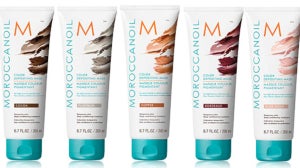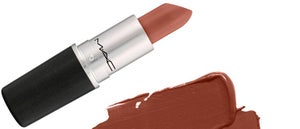Today, we’ll discover what it does, why we need it, and what we can do to ensure that we’re meeting our daily recommended intake.
What Is Vitamin D?
Let’s start from the beginning, vitamin D (or calciferol) is a fat-soluble vitamin that can be found in some foods, either naturally or added in the process of fortification. However, the primary way that we get our vitamin D is directly from the sun. Cool right?
When the sun’s UV rays reach our skin, they trigger the creation of vitamin D. The general consensus is that from early April through September, most people get enough sunlight to produce the amount they need. Of course, that can only occur if our skin is exposed to the sun, which means that if you regularly wear sunscreen or long layers, or simply don’t spend much time outdoors, you’re probably not getting as much as you think!
This makes vitamin D deficiency a very real threat during lockdown, as many of us are spending a lot more time indoors than we usually would. Thankfully though, we can access it in more ways than through the sun alone.
The main foods (and natural sources) that contain vitamin D are oily fish, red meat, liver and egg yolks. It can also be found in fortified foods, such as breakfast cereals. However, unless you eat a diet particularly high in these foods, you’re probably still not getting enough vitamin D to hit your targets. This is why the NHS recommends that everyone should consider taking a supplement, especially over winter and if you spend a lot of time indoors.
How Does It Work?
Vitamin D plays many essential roles in our body, including promoting calcium absorption in the gut and encouraging bone growth. If you become deficient, your bones can become brittle and thin, leading to rickets in children and contributing to osteoporosis in older adults. This is why supplements are highly recommended to babies and children, and also to women, who are at higher risk of developing osteoporosis.
Who Can Benefit From Using Vitamin D?
Between the months of October and March, most areas of the UK don’t get enough sunlight for adequate production, read more here. Because of this, it’s recommended that we all take a 10µg (microgram) supplement of vitamin D per day. This amount might also be given in IU (International Units), which equates to 400IU.
In addition, there are other groups of people who may benefit from taking a supplement year-round. If you have dark skin, the sun’s UV rays don’t penetrate as easily, so you may not get enough exposure from sunlight alone. As mentioned previously, you can also be at risk of deficiency if you cover up during the summer months or don’t spend much time outdoors.
What Products Contain Vitamin D?
We stock a wide range of supplements that include vitamin D. It’s recommended that most people take 10 micrograms a day and that you don’t exceed 100 micrograms (4,000 IU). With that in mind, here are our top suggestions for a daily supplement.
With just over twice the daily minimum intake, these chewable Solgar Vitamin D3 1000 IU (25 µg) Chewable Tablets give you ample vitamin D while still falling well within the recommended allowance. Solgar have a global reputation for quality, and their vegetarian-friendly tablets make them a great all-rounder for daily use.
With a range of vitamins, including B1, B2, C, D and E, Bioglan Family VitaGummies are ideal for adults and children aged 12+. Two gummies a day provides 10µg of vitamin D and with three fruity flavours, taking supplements has never tasted so good.
A fantastic option for women, these Bioglan Women’s Multivitamin Gummies have been designed for optimal hormonal balance, energy, metabolism and immune function. With 100% of your recommended vitamin D, E, B6, B12 and folic acid, it’s a daily boost for much more than just your bones.
A must-have during the colder months, Sambucol’s Extra Defence Liquid contains everything you need to supercharge your immune system. The extra strength formula contains antioxidants and vitamins D, C and B6 to fight those winter nasties.
Related Articles








